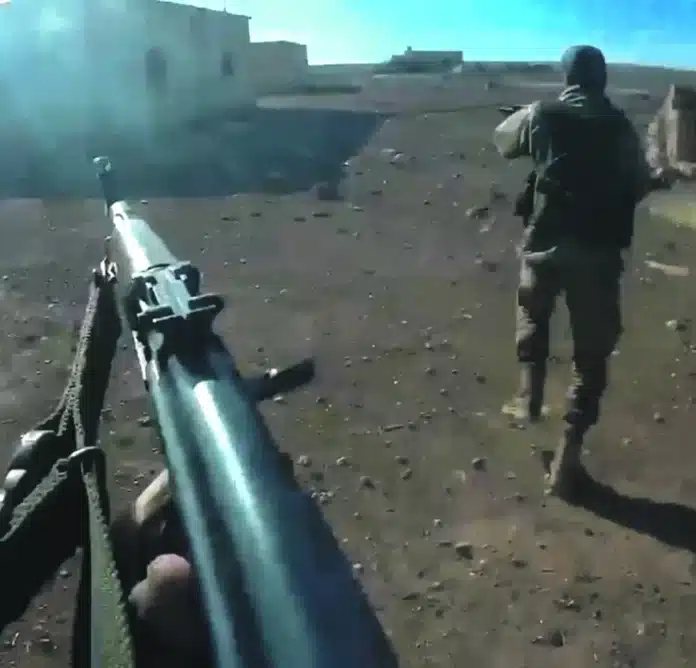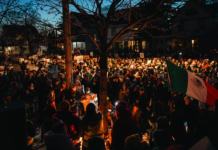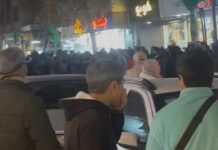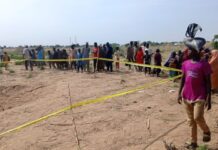Turkish-backed forces seize on shifting balance of power in region
Editorial from Offensiv, paper of Socialistiskt Alternativ (ISA in Sweden)
(This article was first published on 3 December 2024)
The Islamist HTS (Hayat Tahrir al-Sham) militia’s lightning attack and conquest of Aleppo, Syria’s second largest city, in just two days has further aggravated the military and geopolitical crisis in the Middle East. The region’s workers, the poor and the oppressed are paying the price in terms of death and suffering in the military power struggle fuelled by regimes, great powers and right wing militias.
The Israeli state, led by what Socialist Struggle Movement (ISA in Israel-Palestine) has called the “Netanyahu blood government”, still has the ethnic cleansing and total destruction of Gaza as its top priority. The bombing of Lebanon and the escalation of the conflict with Iran to a new level, with missile strikes from both sides, gave the Netanyahu government increased support both in Israel and from Western allied governments, at least for a time. It has been used to push for even harsher attacks on northern Gaza in particular, with widespread starvation on top of continued bombing and massacres.
The balance of power between the region’s powers has been altered by the IDF bombing of Beirut, invasion of southern Lebanon and the assassination of Hezbollah’s leadership, along with the still-looming threat of a wider attack on Iran, potentially targeting its nuclear facilities. The ceasefire signed over Lebanon is entirely on Israel’s terms, even though Hezbollah was in dire need of respite. In the conflict with Iran and its allies such as Hezbollah, the Israeli government has the full backing of US imperialism.
In the fighting since the reactionary attack by Hamas on 7 October last year and Israel’s genocidal war on Gaza since then, both Israel and the USA have launched multiple attacks on Iran backed militias in Yemen, Syria and Iraq. Meanwhile, the Syrian regime has kept a low profile, aware of its weakness after the devastating 2011–20 civil war and the fragile ceasefire since then. Since then, the Assad dictatorship has gradually raised its international profile and been allowed back to Arab summits.
But the regime in Damascus was only able to regain full control of just over half of Syria with the help of Russian bombers and Hezbollah ground troops, backed by Iran. In Idlib in north-west Syria, Islamist Sunni militias established their own dictatorship, in collaboration with the Erdogan regime in Turkey. The Turkish army has repeatedly entered Syria and occupied areas in the north.
The ruling militia in Idlib, Hayat Tahrir al-Sham, formerly known as al-Nusra, has now taken advantage of the changed balance of forces in the region since Hezbollah — which played an important role in backing the Assad regime during the civil war — was at least temporarily weakened. At the same time, the Ukraine war means that an overstretched Putin cannot give the Assad regime the same support as before, though it has conducted limited air strikes against HTS in recent days. The regular Syrian army seems to have fled without fighting as the HTS militia advanced.
The HTS militia is not entirely controlled by Ankara, but would hardly be able to act without its green light. For the Turkish regime, the attack represents a new opportunity to strike at the Kurds while increasing its own power in the region. US imperialism and EU countries relied on the Kurdish YPG militia when the Islamic State was defeated, but have since shown time and again that they are not on the side of the Kurds, giving Turkey a free hand.
For the people of Syria, the resurgent war is another disaster. In almost ten years of war, it is estimated that more than 400,000 people have been killed and more than 12 million forced to flee their homes. The initially popular uprising in 2011 was suppressed and quickly hijacked by Islamist militias backed by Turkey, Saudi Arabia and Qatar, while Assad’s regime was backed by Russia and Iran and its allies. The 2020 ceasefire brought a pause in the fighting, but the human suffering and economic burdens saw no relief.
What is happening now could develop into an even more escalated war. The election of Trump, who bombed Syria heavily during his first term, has further increased tensions and instability. The imperialist power blocs led by the US and China respectively will support their allies. Governments, imperialist powers and militia armies based on capitalism and imperialism can never bring peace or security to the masses of the Middle East, only continued suffering and hardship.
The workers and oppressed of the Middle East must organize themselves independently and democratically, in mass organizations with their own revolutionary programme of international socialism — peace, democratic and national rights, and massive reconstruction based on public ownership and control of the region’s wealth.




